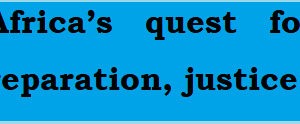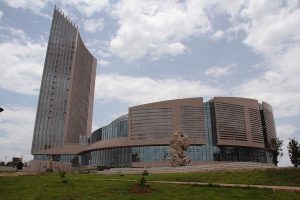
On the Occasion of the Fifty-fifth session of the Economic Commission for Africa Conference of African Ministers of Finance, Planning and Economic Development
Excellency Mr. Antonio Pedro, ECA Acting Executive Secretary, Honorable Ministers from Member States,
Heads of UN Agencies,
Distinguished Ambassadors, Diplomats, Invited Guests, Ladies and Gentlemen,
On behalf of the People and Government of Ethiopia, I warmly welcome both virtual and in person participants to, Ethiopia, a land of rich history and wonders.
It is also a great privilege and honor to welcome you all to the 55th Conference of Ministers of Finance and Economic Planning where we deliberate on Africa’s state of economic and social development, and regional integration. I would like to thank the Commission for facilitating this important event among African ministers of Finance, Planning and Economic Development, representatives of member States, entities of the United Nations system, pan-African financial institutions, African academic and research institutions, development partners, and intergovernmental organizations.
The theme of this session is “recovery and transformation in Africa to reduce inequalities and vulnerabilities”. It underlines that Africa has a lot to do to resolve its socio-economic challenges, including the widening income inequalities and extreme poverty across the continent.
Excellencies, Ladies and Gentlemen,
As you may recall, most African economies had been doing so well in the past few decades that we were on track to meet most of the targets in SDGs until multiple global and internal shocks threatened to unravel several years of socio-economic gains. Until 2019, Africa was home to the world’s fastest-growing economies- a growth fueled partly by favorable terms of trade, better macroeconomic management
and growing investment. The advent of the COVID-19 changed this success story dramatically. Millions of Africans have been pushed into poverty, while millions more are at risk of falling into extreme poverty due to disruptions in the global economy precipitated by the war in Eastern Europe and the frequency of extreme weathers caused by climate change.
The war in Eastern Europe disrupted global value chains, led to a spike in key commodity prices such as fuel, edible oil, wheat, and fertilizers as well as tightening of monetary policies in the developed countries, leading to an increase in global lending rates.
Climate change induced droughts, floods and erratic rain patterns are not only disrupting economic activities and productivities, but also endanger millions of lives in our continent. The combined impacts of the multiple and recurring global shocks are causing hardships unprecedented in recent memory and led to significant liquidity crunches in the economies of many African countries.
Excellencies, Ladies and Gentlemen,
The immediate and long-term consequences of COVID-19 and the global economic and security crisis are a wakeup call for Africa to rethink its development paradigms and seek homegrown solutions before the crisis engulf us all. Addressing the multiple economic challenges of Africa requires a collaborative and concentrated effort, which should be people-focused, sustainable in policy measures and inclusive enough in addressing the most vulnerable people. Our approaches to address economic shocks and poverty alleviation should balance between short-term response measures and lasting preventive solutions. Our recovery and transformational efforts should target the most vulnerable population of the society. We should strive to reduce the prevailing income and wealth inequality as well as
extreme poverty. Most importantly, our economies need to adapt and grow in complexity, value addition and diversification so that Africa’s regional integration becomes an economic force to withstand future shocks.
We all know that Africa is a continent of unlimited possibilities, untapped potential and enormous opportunities that are yet to be seized and exploited. Let us make a concerted effort to focus on these blessings than count our setbacks. For example, as you all know public finance is an effective instrument to tackle widening inequality and reducing poverty through redistributive policies, which we have not utilized to the full in our respective countries. Our tax efforts are still low and could be improved further to mobilize billions of dollars to finance critical public service programs, such as infrastructure, education, health and social protection schemes. Modernizing the tax system has multifaceted advantages if it is properly designed and implemented.
In the face of mounting global crisis, which are testing the economically advanced countries, creating wealth and increasing domestic resources is not an option for Africa; it is a necessity action to be taken more seriously. Structural transformation of our economies is highly important mainly to lay the economy on strong foundation and create decent jobs.
Excellencies, Ladies and Gentlemen,
Ethiopia is one of Africa’s recent examples of resilience in the face of multiple shocks. The current government of Ethiopia launched the Home-Grown Economic Reform in 2018 to ensure macro-economic stability, easing of doing business and addressing institutional constraints for inclusive and private-sector led growth. Unfortunately, right after launching, the Reform faced unexpected obstacles due to the outbreak of conflict in Tigray region, the COVID-19 pandemic, climate change
induced shocks such as drought, and locust invasion in some part of the country. Amidst these internal and external shocks, the government exerted maximum effort to take the reform agenda forward and achieved remarkable results, including positive per capita income growth, better debt management, improved FDI flows. and export performance, as well as privatization of public enterprises and liberalization of selected sectors, which have boosted private sector participation in the economy. We also improved our domestic resource mobilization capacity through innovative reforms in tax administration, tax rates and application of information technologies.
In spite of these positive gains, most of the macro-economic imbalances such as fiscal deficit, foreign exchange depletion, galloping inflation and accumulated debt, remain stern economic setbacks. We have therefore continued working on the second Home Grown Economic Reform to consolidate the gains and address current and emerging macroeconomic imbalances. Furthermore, as we work towards peace consolidation, our reform also focuses on paving the way for equitable and inclusive post-conflict recovery that will contribute towards strengthening social cohesion among all Ethiopians.
Excellencies, Ladies and Gentlemen,
As Africans, it is important to recognize that we share the same destiny, and divided we remain fragmented, but united we rise strong and integrated. Big achievements emanate from making wise use of available resources and opportunities at hand. The steps we take together, both as individual countries and as a continent will guarantee us a better and prosperous future. The recent experience of my country on improving agricultural productivity to achieve food sovereignty, a prime example of exploiting collective wisdom of African stake
holders. I call upon all my fellow Africans and partners to concentrate on our untapped potentials to transform our continent and eliminate undeserved poverty.
I wish you a fruitful deliberation and I thank you!




